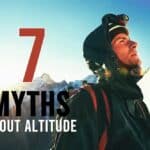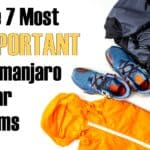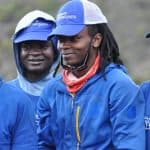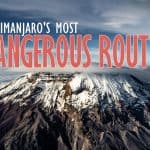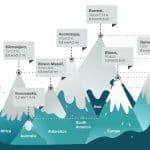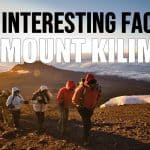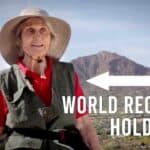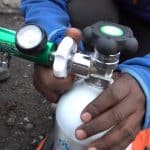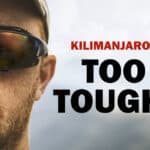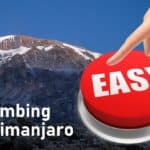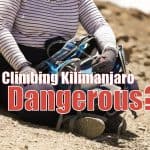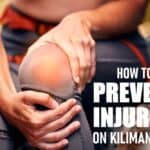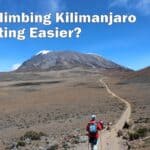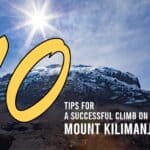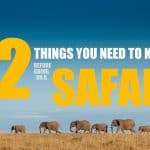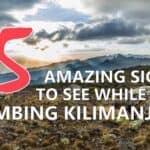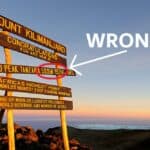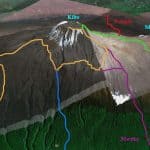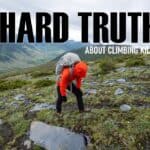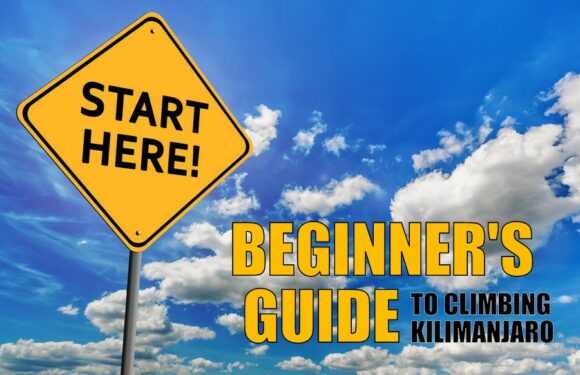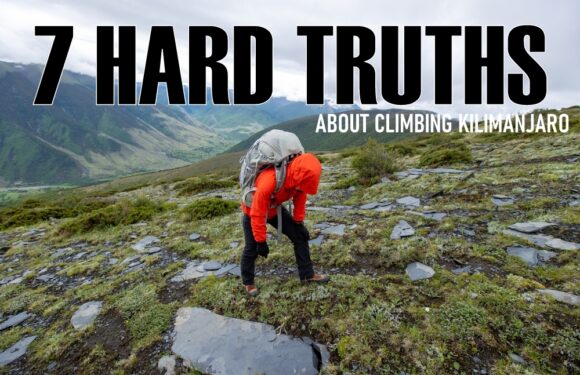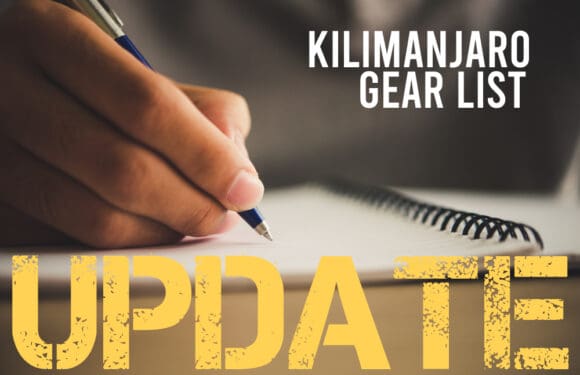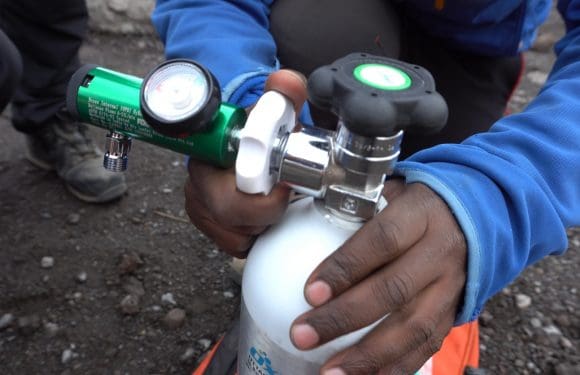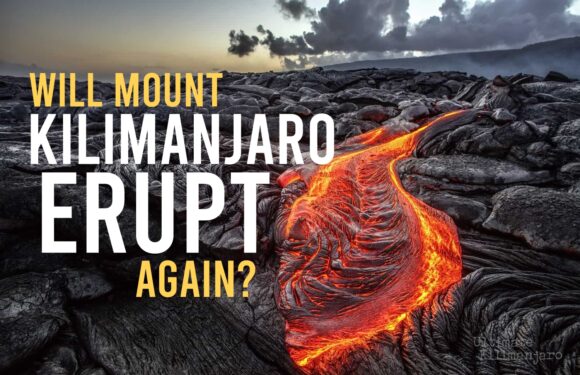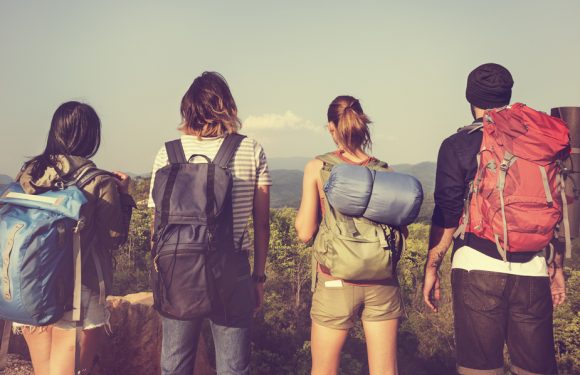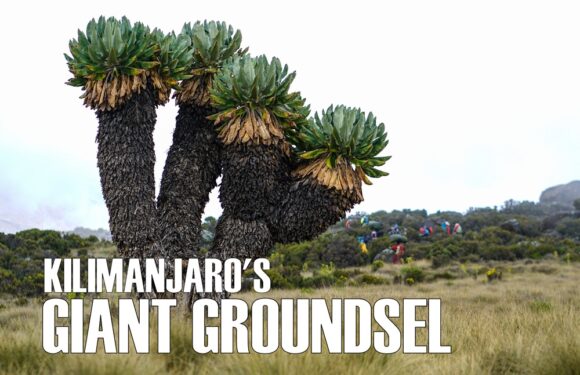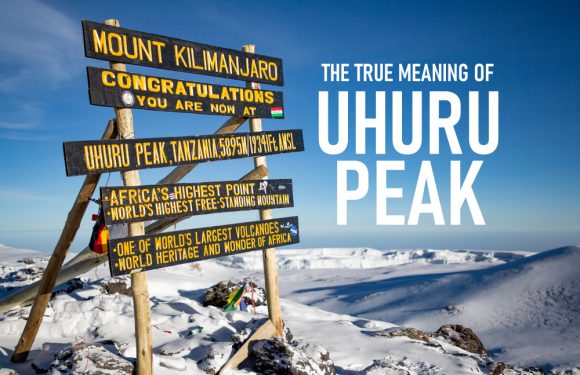On occasion we receive inquiries about whether it would be possible for visitors to climb Kilimanjaro on their own.
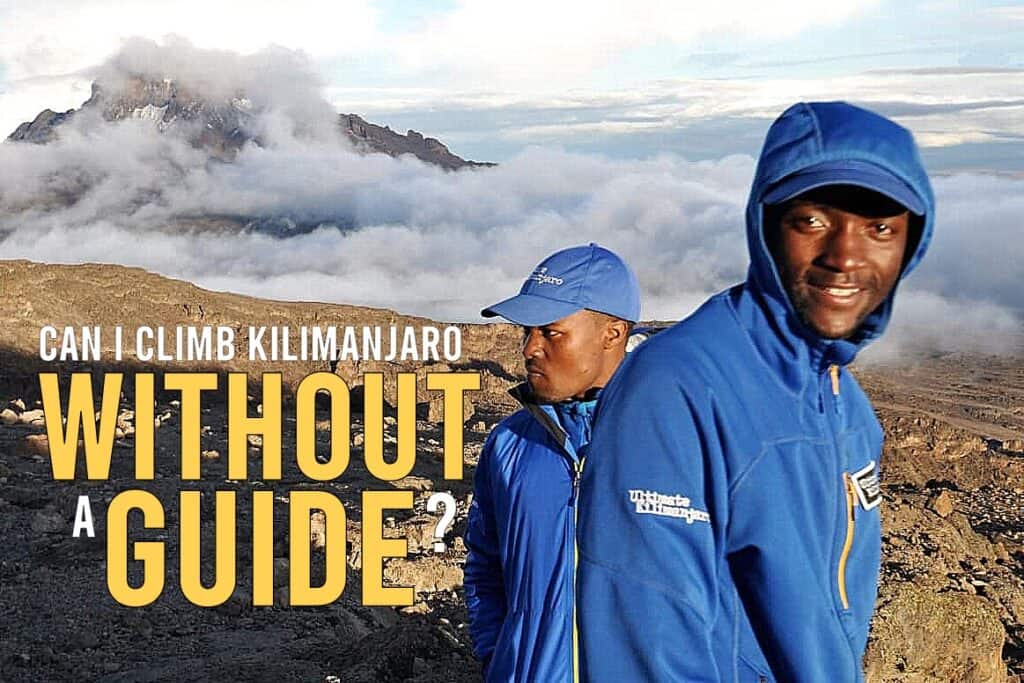
Why People Want to Climb Kilimanjaro Independently
We understand the attraction.
Having a full staff to lead the climb, carry the supplies, and do camp chores leaves some feeling like they are “glamping” and being overly pampered. They want to endure all the hardships that come with climbing a seventh summit peak. They want to feel like they completely earned the summit. And they are somewhat embarassed by the four star treatment they get from a large team of porters, cooks and guides.
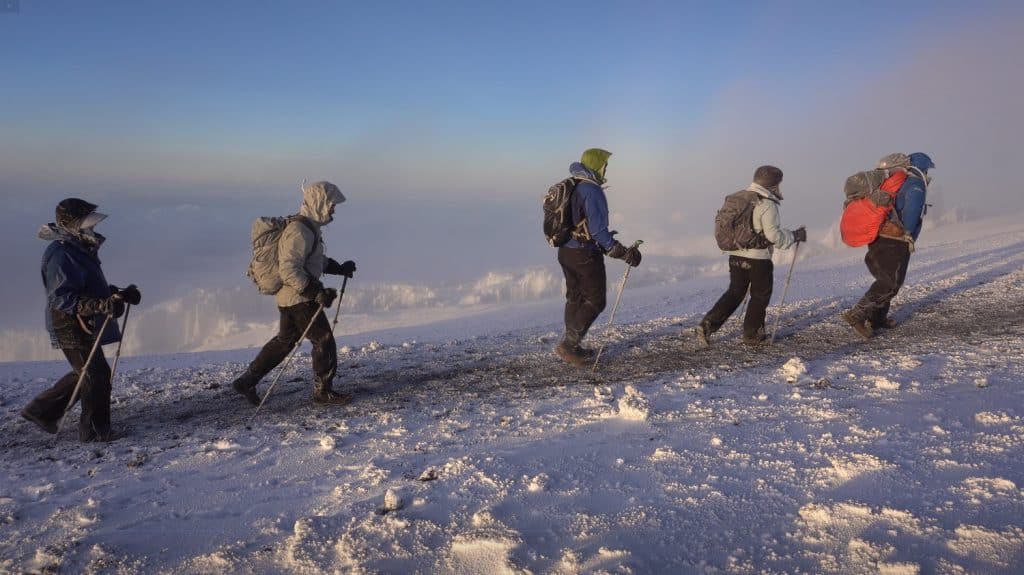
Secondly, some people want to climb without staff to save money. Kilimanjaro expedition prices are not cheap. Though park fees account for the largest portion of operating expenses, the wages of the staff make up the second highest portion. Eliminating the mountain crew entirely would be a reasonable way to reduce the cost.
The Rules Against Climbing Kilimanjaro Without a Guide
Unfortunately, it is not permitted to climb Kilimanjaro without a licensed guide. This rule was established in 1991, when the Kilimanjaro National Park Authority created regulations surrounding what are known as unsupported treks on the mountain. Those same laws are still in effect today. Therefore, it is against the park rules to climb Kilimanjaro unaccompanied by a licensed guide.
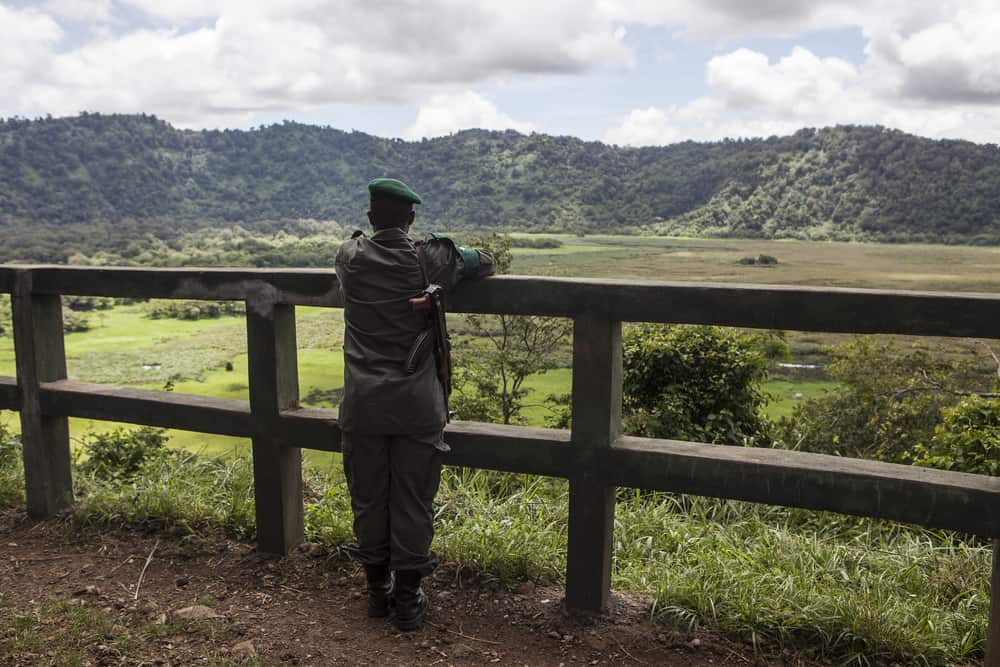
Furthermore, the guide must be employed by or otherwise attached to a licensed tour operator. The tour operator is the entity that has the ability to purchase park permits. That means a freelancing guide who does not have a documented affiliation with a registered company does not qualify for he cannot legally obtain permits.
The local guides and rangers are very familiar with one another and know when someone does not belong. The mountain is a busy place, with many eyeballs. Get caught climbing without a licensed guide and you can be fined, thrown in the local jails, or deported. And you almost certainly will get caught. Do not take that chance!
Climbing Kilimanjaro Without Porters
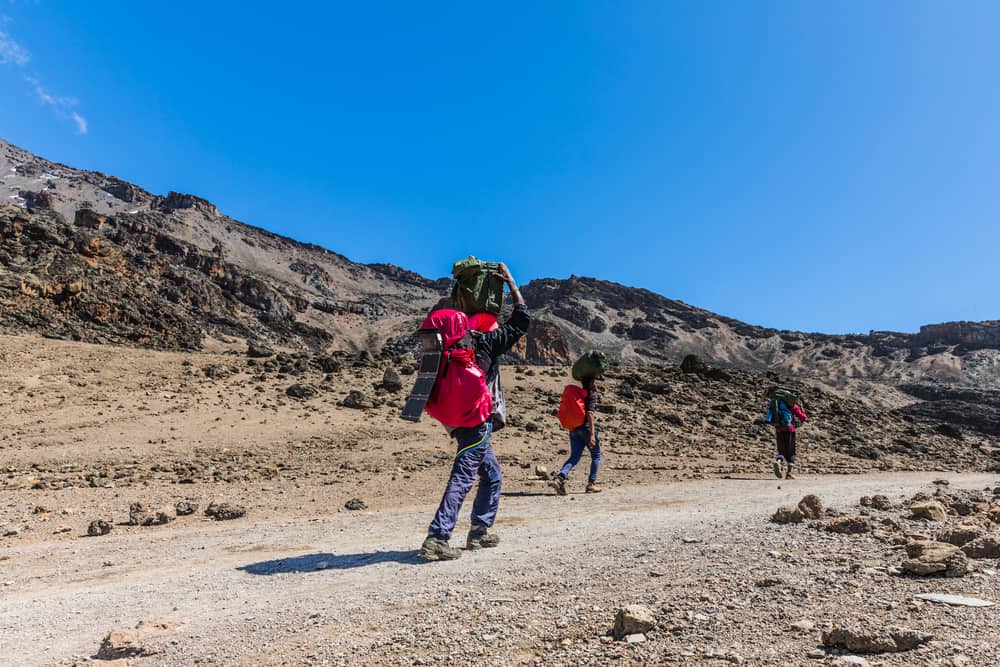
So what about hiring just a guide?
Legally, this is possible. Regulations only speak to being accompanied by a licensed guide. It does not mention porters or other support staff. However, there are some huge challenges that make this endeavor unrealistic for almost anyone.
First, the guide himself will want to have a porter or two to carry his belongings at a minimum. He does not want to carry tents, gear, gas and food for many days up the mountain if he doesn’t have to. Though it might be your dream to climb unassisted, he does not share those views.
It would be similar to someone insisting that you to make your job exponentially harder on purpose, and you complying. So expect that your guide would require you to pay the wages for him and at least another one or two porters, for his own well being.

Secondly, there is a big issue with access to water. On our supported treks, a team of porters leave from camp to fetch water in five gallon buckets and bring them back to camp, over and over, so that our clients have an adequate water supply for drinking, cooking, washing, and for the portable toilets.
Fetching water in this way is manageable at the lower elevations when the water source is close. However, at higher elevations, it’s a huge challenge. There is no reliable source of water above 13,000 feet. High camps Barafu, School Hut and Kibo Hut are located at around 15,400 feet.
So to climb unsupported, you would need to carry enough water to last you until you return to 13,000 feet, in addition to all of your other gear. In other words, you could have a pack weight in excess of 70 lbs. for the most difficult parts of the climb. So while in theory it may still be possible to climb Kilimanjaro without porters, in reality it’s impractical.
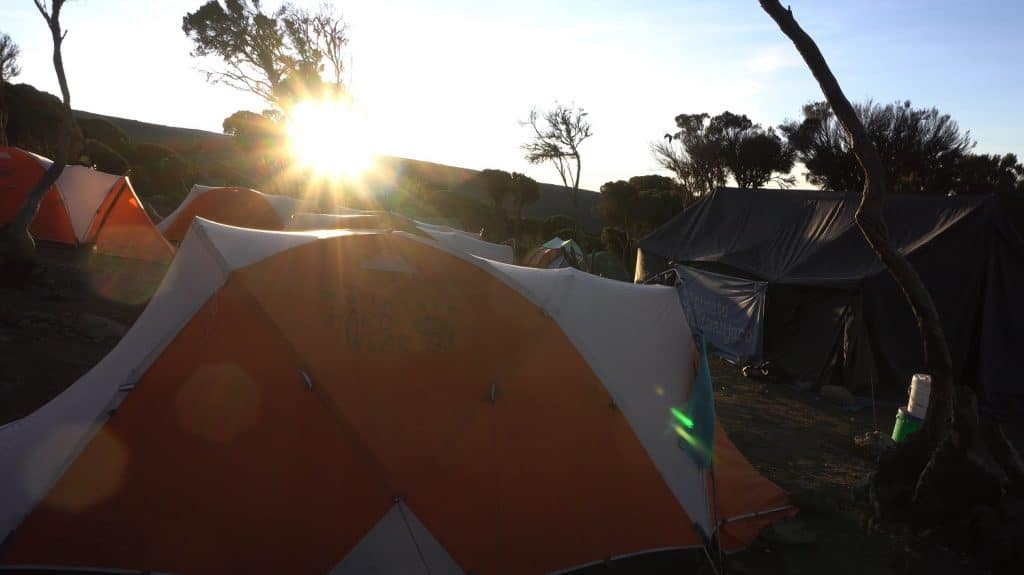
Conclusion
If after reading this, you still want to climb this way, our advice is to consider letting that idea go. You don’t have to be hardcore 100% of the time. Come to Tanzania and allow our guides and porters to show you warm hospitality on the mountain (consensus is that they’re amazing) while you focus on your journey. It is much safer this way and will be much more enjoyable. And in doing so you are supporting the local economy and local staff who depend very much on tourism for their livelihoods.
__________
Read about Our Guides & Porters.


